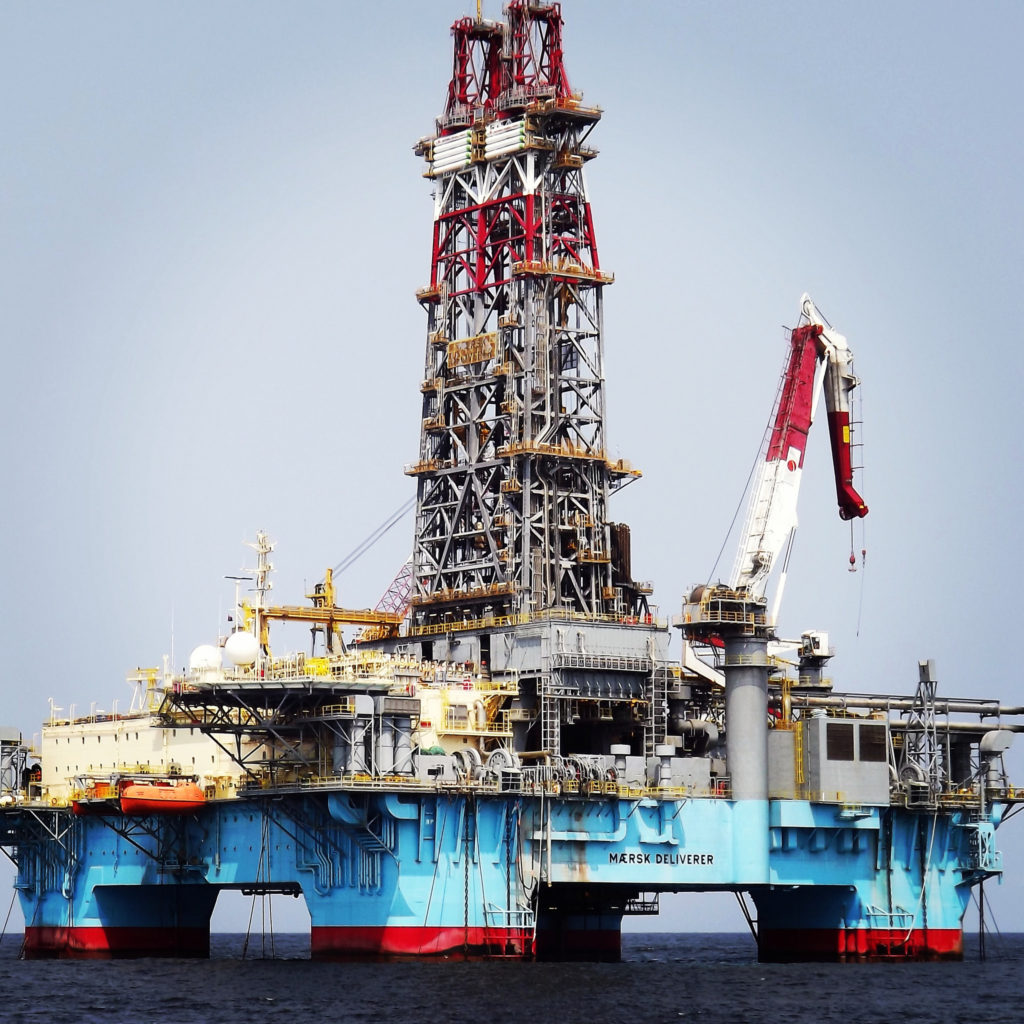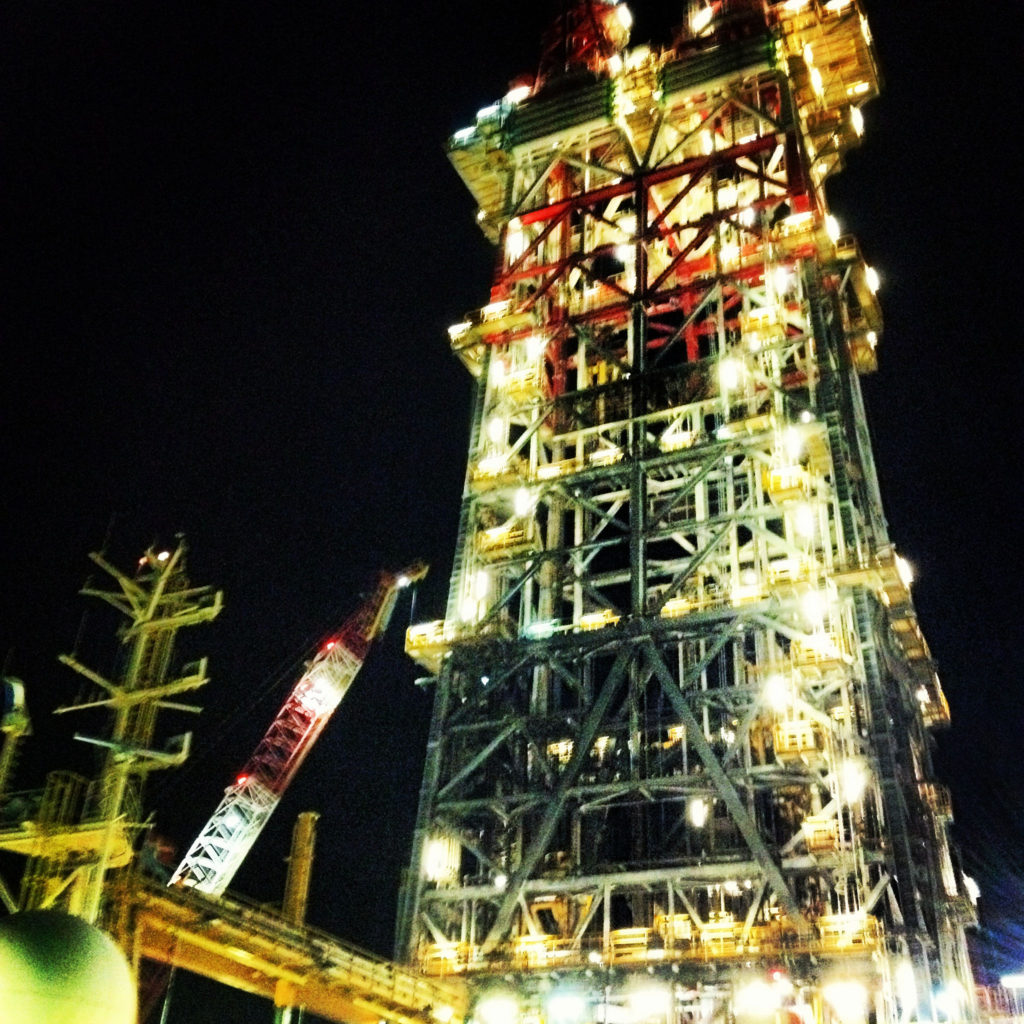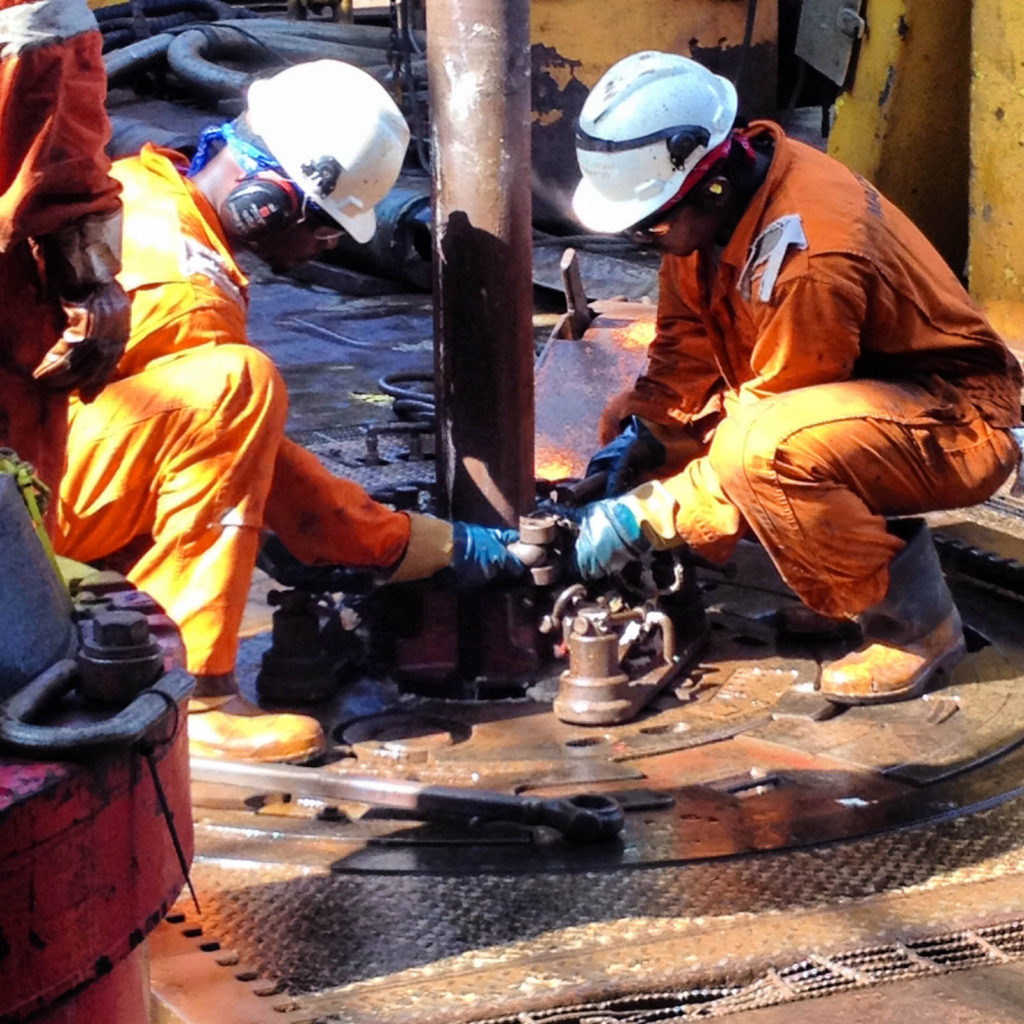I worked as a medical doctor for Maersk Drilling on the rig Maersk Deliverer in Angola from 2013-5.
On an offshore rig the position is called a medic. According to local regulations as well as company preferences, the medic can be a nurse, a paramedic or a doctor. Most are, in fact, not doctors.
The drilling contractor: Owns and operates a drilling rig. In my case the drilling contractor was Maersk Drilling. The drilling contractor then hires the staff necessary to run the rig, some directly, others via an agency. I was hired by the agency Vikarlaeger, who again was hired by Maersk Drilling to supply the rig with doctors.
The operator: Owns the right to operate (drill) in a certain area. Hires the drilling contractor to drill a certain well by paying a fixed day-rate as well as additional fees according to a complex contractual system. The relationship between Operator and Drilling contractor is complicated and both hire service companies etc. In my case, the operator was Chevron.
The drilling rig: Essentially a machine creating holes in the earth. Rigs come in may different sorts: Some operate on land, some offshore, some stand, some float. I worked on Maersk Deliverer, a semi-submersible drilling rig, a floating rig designed to operate on deep water. A short video of the rig is available on YouTube.

The work schedule: Varies from rig to rig. I worked a schedule of 4 weeks on-4 weeks off..
The work: Again, varies according to the company. Generally speaking the tasks may be divided into medical duties and non-medical duties. Depending on local as well as maritime regulations you may or may not be the only medic onboard. Some countries require local medics to be present onboard. I was alone onboard.
I have described a typical working day on the Maersk Deliverer in another post.
Working hours: Normally 6am-6 pm followed by on-call.
General medical duties:
Patient consultations: The majority of patients seen in the sick bay have minor complaints such as common cold or musculoskeletal symptoms. Dental issues are also common. Furthermore malaria was not uncommon among the Angolan employees.
On the Maersk Deliverer, the sick bay is well equipped, however any patient with serious illness would be evacuate onshore. I never had any emergency evacuations, however occasionally a crew member had to be sent off the rig for treatment, the main reason being dental problems and non-work related musculo-skeletal problems.
Day to day running of the sick bay: Ordering medicines and necessary equipment, maintaining logbooks, checking equipment.
Health promotion and hygiene: Adhering to basic principles of hygiene is extremely important when so many people live together in a confined environment. The role of the medic in this context may be to give lectures, put up posters etc. Promoting a healthy lifestyle is another potential focus area for an offshore medic.
A medical support system, where advice may be provided upon request will always be in place. In my case Radio Medical Denmark. Furthermore, Chevron has a clinic in Cabinda.

Occupational health is a major priority in the industry and offshore safety is a major concern and an important parameter on which company performances are measured. One safety parameter is the number of work-related injuries. For these purposes, there is sharp administrative division between work-related and non-work related illnesses and as an offshore rig medic you will be involved in discussing and preventing work-related injuries with colleagues onboard.
Additional tasks vary greatly from company to company and may include various tasks related to safety and training issues.
On larger rigs, such as Maersk Deliverer, a safety officer is responsible for all issues related to safety (inductions, meetings, reporting, inspections, prevention, work-place evaluations, etc). Larger rigs may also employ an RSTC (Rig Safety and Training Coordinator) to assist in all safety and training-related issues. On smaller rigs, several of the above job functions may be performed by the rig medic.

Additional tasks: Maersk Deliverer had two safety officers as well as one RSTC employed, thus I did not have many additional tasks. I did have a few however:
- Daily and weekly tests of the drinking water. Fresh water is made onboard with a fresh-water generator.
- Weekly safety inspections: A tour of the entire rig checking eyewash stations ear plugs, first aid equipment and AEDs.
- Weekly hygiene inspection of the galley and cabins with the Camp Boss.
- Weekly safety drills: Drills involving the entire rig with scenario such as fire, toxic gas outlet etc. This is an opportunity to train the stretcher team: Four crew members assigned to assist the medic in emergencies, including, but not limited to carrying a stretcher.
- Being a medical doctor I had the additional task of completing DMA Medical Certificates for the crew.
I have described a typical day at work in a separate post.
Specific offshore requirements for a medic: Required certificates vary according to the rig location and the drilling contractor. In my case: OPITO (BOSIET) (offshore safety course) including HUET, OGUK and a DMA Medical Examination.
Offshore vocabulary: Be prepared to learn a complete new terminology and an astonishingly high number of abbreviations.
Online information sources:
Offshore rig medic jobs
A photogallery from my time as an offshore rig medic is available on flickr.







I’ve been talking to a man on an oil rig. I’ve been informed he’s had a serious accident, he’s now on a life support machine. The name of the doctor is Rafael. He has said he and and a friend have raised money but are short of £2,000 to fly him to America. Am I being scammed or not.
Thanks
You are almost certainly being scammed, Lynda.